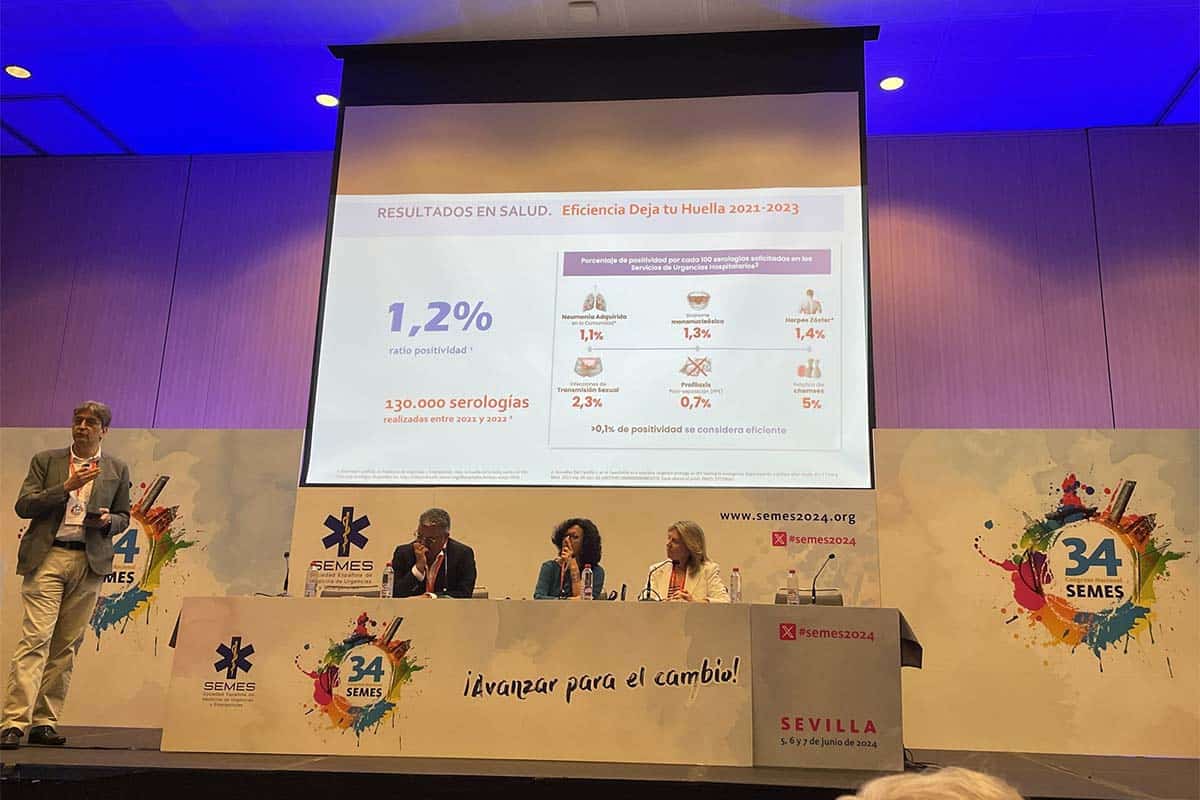Deja tu Huella: success: one in five people are diagnosed with HIV in the emergency department

The XXXIV Congress of the Spanish Society of Emergency Medicine (Semes), held in Seville, highlighted the success of the Deja Tu Huella program for early detection of HIV in emergency situations. This initiative, developed by Semes in collaboration with biopharmaceutical company Gilead, achieves this. every fifth HIV diagnosis in 2022 will be carried out in services Emergenciesadding a total of 1,618 detected cases.
Juan González del Castillo, coordinator of Infurg-Semes, explained that the program is fundamental to solving the problem 13% of people with HIV did not know their serostatus and 50% were diagnosed late. Thanks to Deja Tu Huella, early detection has been improved, potentially preventing 6,472 new infections and saving the healthcare system up to €4.4 billion over 20 years. “A third of missed opportunities occurred in emergency departments, especially among populations at risk of social isolation,” commented González del Castillo.
Congress also addressed other key issues in infectious disease, such as sepsis and the evolution of its treatment, as well as the ongoing impact of Covid-19 four years after its emergence. Attendees were able to learn about the results of mild Covid clinical trials conducted in 16 hospitals across the country. “We must be critical and try to improve the use of antibiotics in Spain compared to the rest of Europe,” insisted González del Castillo.
In a presentation of the Deja Tu Huella data, Maria Rio, vice president and general manager of Gilead Spain and Portugal, emphasized the importance of collaboration to the success of the program. “Results of the Leave Your Mark initiative” a great example of collaboration for a common goal, help end the HIV epidemic for everyone, everywhere. “This program demonstrates the fundamental role that emergency services play in diagnosing and referring people who do not know their serostatus so they can begin treatment as soon as possible, which is critical to controlling the virus,” he said.
The Deja Tu Huella program currently has 151 hospitals participated and introduced a new consensus document to strengthen screening in emergency departments, aiming to expand it to more sites and ensure better results in the fight against HIV.
